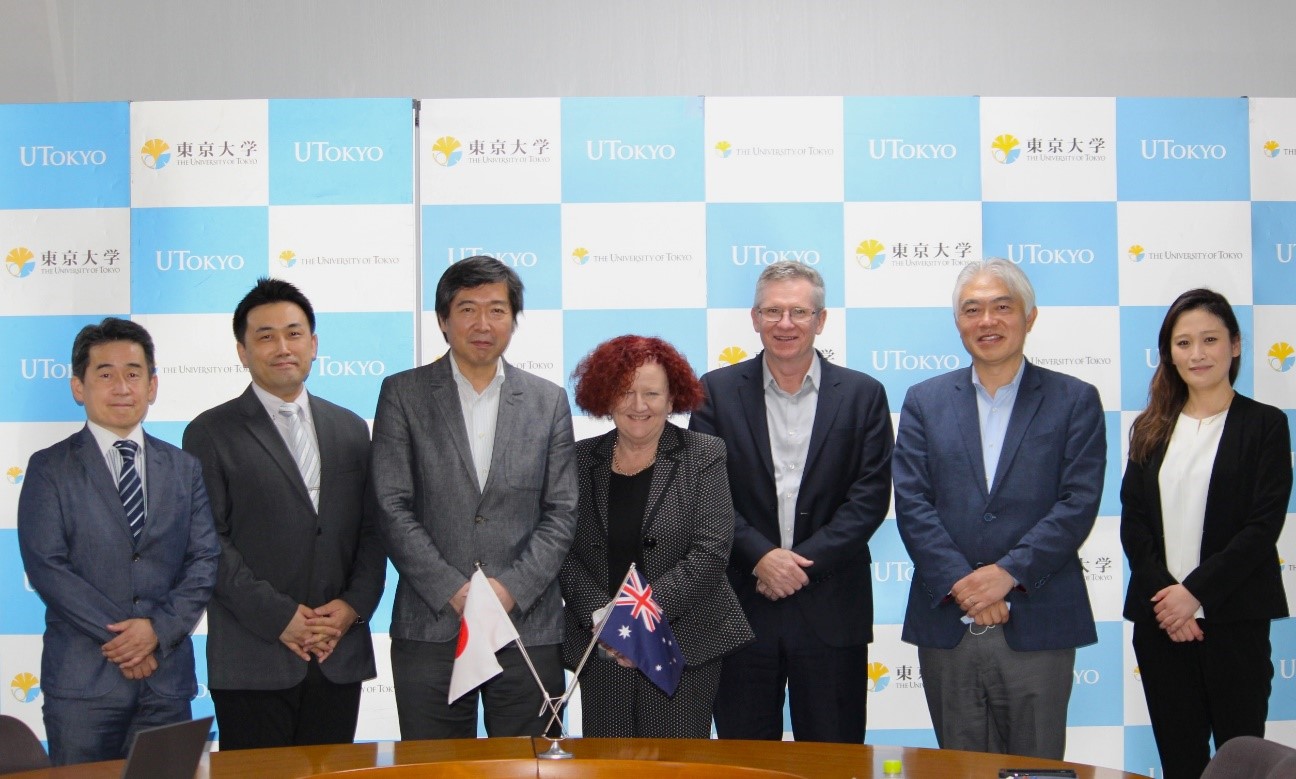-
Regional systems design Research unit
Prof. Shiroyama met with the President of Queensland University of Technology
Regional systems design Research unit
3 June 2022
Prof. Hideaki Shiroyama, Director of IFI met with Prof. Margaret Sheil, the President of Queensland University of Technology (QUT) at Hongo Campus, Tokyo.

QUT is a public university in Brisbane, Australia, and is interested in advancing partnership with The University of Tokyo (UTokyo) in various areas. QUT has been partnering with Research Center for Advanced Science and Technology of UTokyo for the green hydrogen project. As for biological science, IFI and the Queensland State Government are jointly conducting research under the COI-NEXT project entitled “Research Center for “Co-JUNKAN” Platform towards beyond “Zero-Carbon” (Co-JUNKAN)since this April. Prof. Shiroyama and Prof. Sheil introduced the research activities of each institute and university, followed by the overview of Co-JUNKAN presented by Prof. Yasunori Kikuchi, Associate Professor of IFI and the project leader of Co-JUNKAN. Further, IFI-Queensland research collaboration plan was presented by Prof. Satoshi Ohara, Project Associate Professor of IFI.
In Co-JUNKAN, IFI and the Queensland State Government are trying to develop Agro-Industry Green Transformation Technology (GX) from the regional resource. The research to produce bio-fuel and bio-chemical from sugarcane has been conducted in Tanegashima island, Japan, and it demonstrated the potential to apply the energy-economy circulation model to Queensland, which is one of the major sugarcane producing areas. Co-JUNKAN developed technology and systems to produce high-value-added products such as ethanol, bio-plastic, and bio-fuel from sugarcane waste (bagasse). Its process also re-uses the waste heat and by-products generated from the manufacturing process, so that the whole manufacturing process becomes greener (less consumption of fossil fuel, less production of waste), at the same time stimulating the regional economy by producing the high-value-added products. The overall system aims to contribute to achieving the sustainable circular economy of the region in partnership with Academia, Public, and Private sectors, along with the local citizens.
At the global market level, sugar price is falling and the sugar-producing area such as Tanegashima and Queensland are struggling to improve productivity and develop high-value-added alternatives. QUT expressed strong interest in Co-JUNKAN, which tries to co-create a comprehensive solution for energy, environment, and economy co-circulation in partnership with the region by using the regional resource. UTokyo and QUT recognized that Japan and Australia have common issues in various areas such as food and energy security. The discussion between UTokyo and QUT further suggested that a joint research project for such common regional issues could be one of the future collaborations.
About COI-NEXT Co-JUNKAN:
IFI of UTokyo serves as the leading research institute for Co-JUNKAN, which is jointly run by 29 organizations in Japan and overseas including universities, local authorities, public entities, and private companies. It encompasses the following 3 target areas;
- Dissemination of Co-learning to design beyond “zero-carbon”;
- Implementation of Co-JUNKAN platform for all;
- Social implementation of the technology to achieve beyond “zero-carbon”.